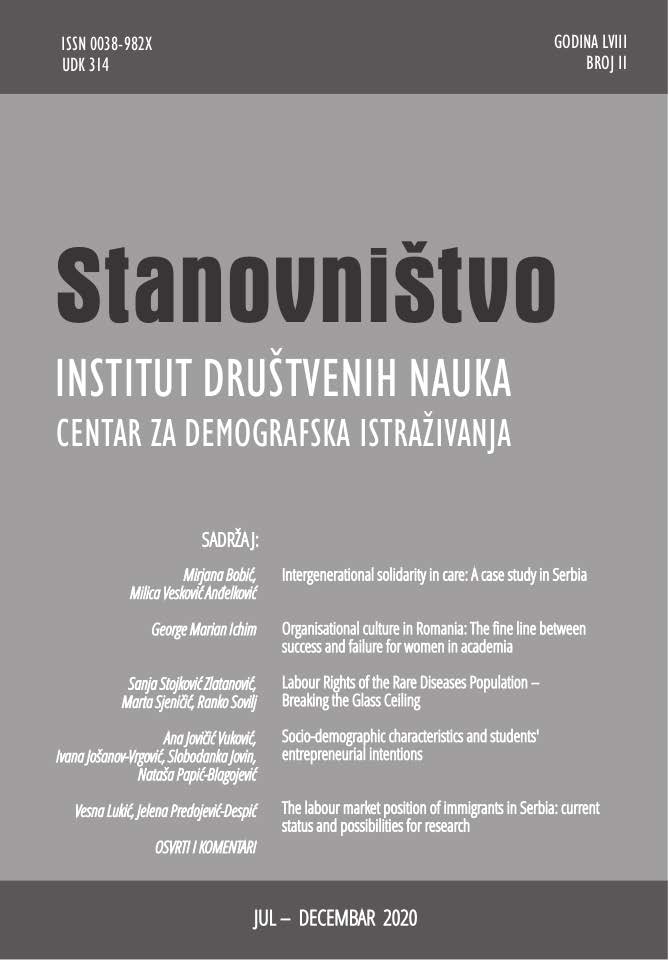Organisational culture in Romania: The fine line between success and failure for women in academia
Organisational culture in Romania: The fine line between success and failure for women in academia
Author(s): George Marian IchimSubject(s): Gender Studies, Higher Education , Sociology of Culture, Social Norms / Social Control, Sociology of Education
Published by: Институт друштвених наука
Keywords: personal satisfaction; academic performance; management position; male stereotypes; work-life balance
Summary/Abstract: Experiences of discrimination in the academic world discourage women from taking part in contests to occupy higher academic positions. People tend to evaluate academic management based on what they consider to be normal behaviour for both women and men. Because of this, women are often perceived as less appropriately equipped to occupy an academic managerial position than men, especially in fields (such as the academic field) where male stereotypes are regarded as more efficient. This research was intended to evaluate the organisational culture and environment within the largest university centres in Iaşi (Romania) in relation to the accomplishment and execution of academic and scientific tasks by academic staff, as well as measuring their personal and professional satisfaction. We used a qualitative method (the ‘life story’ interview), as we wanted to identify certain events and defining traits of women in academia by focusing on their subjective experiences. For this purpose, we took into account the following three indicators: professional motivation and satisfaction, balancing personal and professional life, and success and failure in the academic world. Focusing on the obstacles women meet in their attempt to reach scientific/academic management positions, we have noticed that one of the major difficulties women in the academic world are confronted with when becoming academic managers is creating a balance between family life and their career. The interviewed women are not willing to give up domestic tasks for the benefit of professional tasks, as they are part of the traditional family model. On the other hand, this study shows that these women do not lack motivation to take up a managerial position, but that the norms promoted in the academic environment disadvantage women, despite the fact that the interviewees consider these formal norms to be gender-neutral.
Journal: Stanovništvo
- Issue Year: 58/2020
- Issue No: 2
- Language: English

